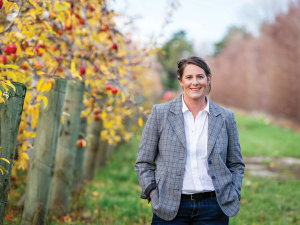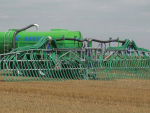Allowing only 125 skilled agricultural machinery operators into New Zealand next season falls way short of what's needed, says rural contractors.
Last week, the Government announced that of 5,000 exemptions to border controls, 125 mobile agricultural machinery operators would be allowed.
Rural Contractors NZ chief executive Roger Parton says while the 125 exemptions will help, a recent survey of his members showed a need for 400 experienced operators as an absolute minimum.
Parton released extracts from the survey which shows shortages of skilled machinery operators forced many rural contractors to work very long hours and face a lot of stress.
He says some contractors say they are considering leaving the industry because the 2020/21 season was so stressful due to the lack of skilled workers, compounded by having to manage inexperienced staff.
"What the Government must acknowledge is there are limits to how many people we can recruit and train to competently drive a $500,000-plus machine - and then be happy doing so, living and working remotely for only a few months a year."
Parton says many farmers are largely dependent on contractors to provide them with the feed they need to get stock through winter and adverse weather events like the drought in many regions this year or to help ensure crops can be produced and harvested.
Rural Contractors NZ is seeking an urgent meeting with MPI to discuss the latest decision and see what, if any, discretion may be able to be applied, given the risks posed by the announced border exemption for only 125 skilled machinery operators.



















